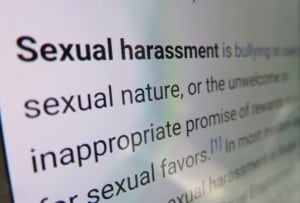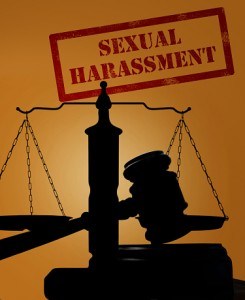 It is a common practice for individual states to pattern their own laws governing sexual harassment and other discrimination issues on existing federal laws. The sexual harassment laws in Tennessee give victims of sexual harassment protections based the state Courts’ interpretation of Tennessee’s Human Rights Act (THRA), which reflects aspects of Title VII of the 1964 Civil Rights Act.
It is a common practice for individual states to pattern their own laws governing sexual harassment and other discrimination issues on existing federal laws. The sexual harassment laws in Tennessee give victims of sexual harassment protections based the state Courts’ interpretation of Tennessee’s Human Rights Act (THRA), which reflects aspects of Title VII of the 1964 Civil Rights Act.
THRA and sexual harassment laws in Tennessee
The Tennessee Human Rights Act forbids discriminatory practices including sexual harassment. Under the THRA, an employer has engaged in a discriminatory practice if it fails or refuses to hire or discharge any individual or otherwise discriminates against a person with respect to:
- Compensation
- Terms
- Conditions or privileges of employment due to the individual’s
- Creed
- Race
- Color
- Religion
- Sex
- Age
- National origin
The Tennessee Human Rights Commission has incorporated federal law that defines sexual harassment. In Tennessee, sexual harassment includes any requests for sexual favors, unwelcome sexual advances, or other physical or verbal conduct of a sexual nature when:
- The conduct has the effect or purpose of causing unreasonable interference with the employee’s work performance or creating an offensive, intimidating, or hostile working environment,
- Submission to or rejection of the conduct is used as a factor in an employment decision, or
- Submission to the conduct is made a condition or term of employment.
It is also important to understand that sexual harassment can consists of sending explicit texts or emails to another employee, making sexual comments toward or about another employee, or relating inappropriate jokes of a sexual nature within the workplace.
Unwanted touching within the workplace is also another form of sexual harassment, regardless of how innocent the touching may seem.
Two major sexual harassment claims under Tennessee law
Under Tennessee law, two types of sexual harassment claims are generally recognized.
The first is referred to as a “quid pro quo” claim that occurs when an employee is the object of unsolicited sexual harassment which may involve sexual advances or requests for sexual favors in exchange for a promise to provide certain job benefits (including keeping the present job).
The second is referred to as a hostile work environment claim. This case involves a scenario in which:
- An employee is subjected to unsolicited sexual harassment
- The harassment effected a condition, term, or privilege of employment
- The employer knew or should have reasonably known of the harassing activity and failed to respond with quick and proper corrective action
Many of these claims are difficult to confront due to the fact that the subject matter often involves the exposure of harmful and embarrassing conduct of another coworker, manager, supervisor, or even the president or CEO of the company. These matters are best handled by you and your attorney working with others involved in a confidential and discreet manner to ensure your rights are protected throughout the process.
If you have suffered sexual harassment in the workplace, our sexual harassment attorneys at the Gilbert Firm in Tennessee are here to fight for your rights. We can help you obtain justice and receive the compensation you deserve for your injuries. To arrange a consultation about your case, give Jonathan Bobbitt a call today at 888.996.9731 or fill out our contact form. We offer legal representation from our offices located in Chattanooga, Nashville, Memphis, Knoxville, and Jackson.
 With recent allegations against such notable celebrity chefs as Ken Friedman and Mario Batali, it is clear that the restaurant industry is not immune from accusations and incidents of sexual harassment. A recent report by The Washington Post discusses the
With recent allegations against such notable celebrity chefs as Ken Friedman and Mario Batali, it is clear that the restaurant industry is not immune from accusations and incidents of sexual harassment. A recent report by The Washington Post discusses the  Sexual harassment can happen to anyone, regardless of age, gender, sexual identity, or race. But it is not often we consider where sexual harassment occurs; most people don’t think past the workplace when it comes to the legal repercussions of sexual harassment. Understanding the scope of when and where sexual harassment can occur could empower victims to speak up. It could also make perpetrators think twice about the consequences before making inappropriate comments, gestures, intimations, or actions.
Sexual harassment can happen to anyone, regardless of age, gender, sexual identity, or race. But it is not often we consider where sexual harassment occurs; most people don’t think past the workplace when it comes to the legal repercussions of sexual harassment. Understanding the scope of when and where sexual harassment can occur could empower victims to speak up. It could also make perpetrators think twice about the consequences before making inappropriate comments, gestures, intimations, or actions. Let’s start with the big number first: 69,000 women – 69,000!!!!! These women, current and former employees of Sterling Jewelers, are part of a class-action lawsuit that began in 2008. (For context, Sterling owns Kay Jewelers and Jared the Galleria of Jewelry.)
Let’s start with the big number first: 69,000 women – 69,000!!!!! These women, current and former employees of Sterling Jewelers, are part of a class-action lawsuit that began in 2008. (For context, Sterling owns Kay Jewelers and Jared the Galleria of Jewelry.) Casey Affleck, younger brother of Ben Affleck, just won a Golden Globe for Best Actor for his work in Manchester by the Sea. Clearly, he is a talented actor. Before he won, however, the news was filled with stories about his alleged acts of sexual harassment against two women back in 2010. And so the debates ensue over separating the art from the artist, and whether doing so allows the actor to avoid culpability for those alleged actions.
Casey Affleck, younger brother of Ben Affleck, just won a Golden Globe for Best Actor for his work in Manchester by the Sea. Clearly, he is a talented actor. Before he won, however, the news was filled with stories about his alleged acts of sexual harassment against two women back in 2010. And so the debates ensue over separating the art from the artist, and whether doing so allows the actor to avoid culpability for those alleged actions. 21st Century Fox has reached a settlement with Gretchen Carlson for $20 million. Ms. Carlson sued Roger Aisles, then-CEO of Fox News, for
21st Century Fox has reached a settlement with Gretchen Carlson for $20 million. Ms. Carlson sued Roger Aisles, then-CEO of Fox News, for